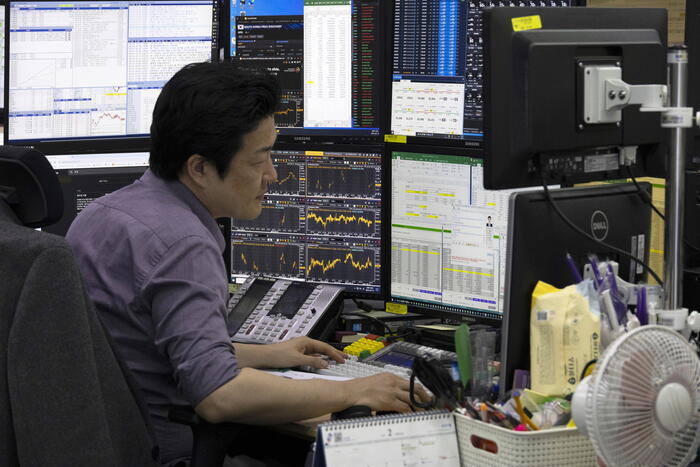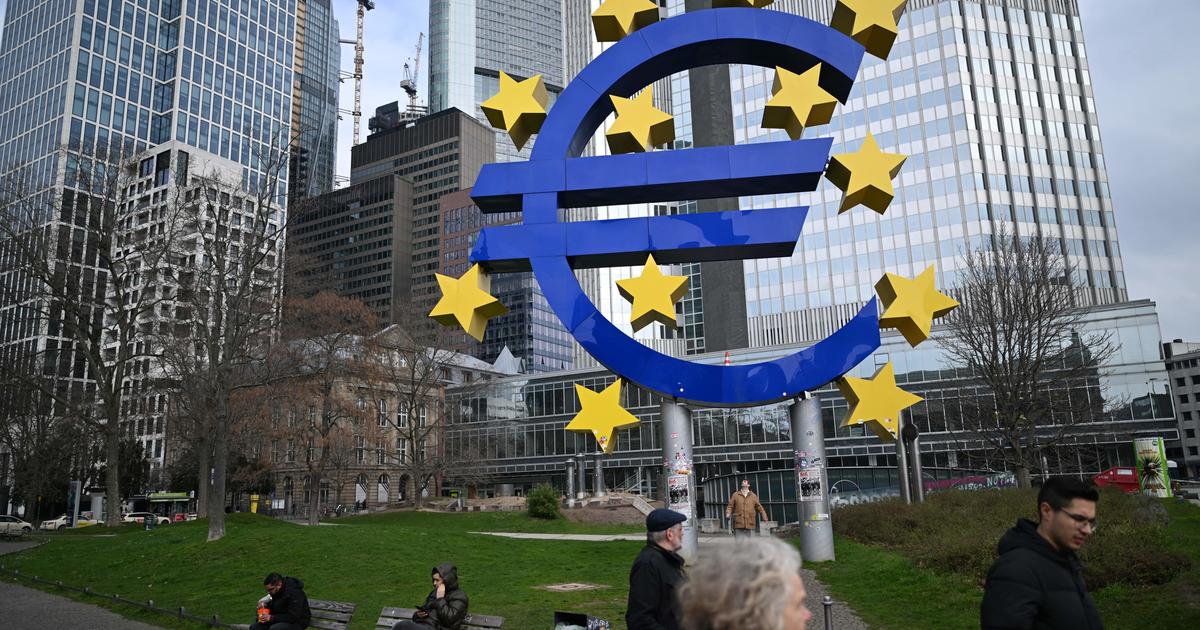Inflation puts ECB under pressure: currency watchdog ahead of first rate hike since 2011
Created: 07/21/2022, 11:12 am
By: Lisa Mayerhofer
The European Central Bank is about to turn interest rates.
Many economists would have expected the move sooner.
© Arne Dedert/dpa/dpa-tmn
The European Central Bank is likely to initiate interest rate reversal on Thursday in view of record inflation.
Critics consider the central bank's course to be too hesitant.
The news ticker for the ECB decision.
The
ECB is planning
an interest rate turnaround
at its meeting on Thursday
.
The rate hike could be higher than announced.
The ECB is faced with a balancing act
due to the record inflation in the euro area and the heavily indebted south.
Interest rates
are the ECB's most important tool in the fight against inflation .
This shows an overview of the key interest rates.
This
news ticker
on the interest rate decision by the ECB is updated regularly.
Update from July 21, 10:55 a.m
.: It would be the first interest rate hike in eleven years in the euro area: in order to curb high inflation, the European Central Bank (ECB) wants after years of ultra-loose monetary policy at its meeting this Thursday (July 21) raise interest rates again.
The central bank's decisions will be announced in the afternoon, for the first time at 2:15 p.m.
If the Governing Council of the ECB follows the path announced in June at its meeting in Frankfurt, the key interest rate would initially rise from zero percent to 0.25 percent.
The negative interest rate for parked funds from commercial banks at the ECB would be halved from minus 0.5 percent to minus 0.25 percent.
However, given the high level of inflation, a larger rate hike of 50 basis points cannot be ruled out.
Critics accuse the ECB of initiating the turnaround in interest rates too late.
Inflation in the euro zone has been rising to record levels for months.
The pressure on the monetary authorities is therefore great to raise interest rates more significantly.
"If the inflation outlook does not improve, we will have enough information to act more quickly," ECB President Christine Lagarde said at the end of June.
The process of normalizing monetary policy will be “resolutely and sustainably continued”.
The ECB has already announced another rate hike for its meeting on September 8th.
Interest rates: The ECB's main tool in the fight against inflation
Update from July 21, 9:50 a.m
.: The most important goal of the ECB is the stability of the common currency, i.e. the euro.
The target is an inflation rate of two percent.
In June, consumer prices in the euro area were 8.6 percent above the level of the same month last year – and thus well above the ECB target.
That's why the central bank has to react - with its most important instrument, the interest rates, with which it controls the money supply in the Eurosystem.
This is done by the central bankers using the various key interest rates to set the costs that commercial banks in the euro area incur if they want to borrow money from the ECB or deposit it there.
When interest rates are low, banks can lend money cheaply – loans for private consumers and companies then also become cheaper, and the amount of money in circulation increases.
Conversely, higher key interest rates lead to higher borrowing costs and thus indirectly to a decrease in the money supply.
The most important adjustment screws in monetary policy are the three key interest rates of the ECB.
An overview:
also read
Economist criticizes Habeck: "These decisions will not go down well in the history books"
Gas thriller: Delivery suddenly higher than announced - "Putin is playing with our fear"
The three key interest rates of the European Central Bank
main refinancing rate
The main refinancing rate of the ECB is the most important key interest rate.
This determines the interest rate at which banks can borrow money from the central bank.
The minimum term here is one week.
The following applies: If the interest rate rises, the costs for the banks and thus for the consumers also increase in the form of higher interest rates on personal loans.
Conversely, a low main refinancing rate ensures cheap money and thus cheap credit.
The main refinancing rate has remained unchanged at zero percent since March 2016.
top lending rate
The top lending rate determines the cost at which commercial banks can borrow money from the ECB in the short term.
Although banks can also lend money to each other in the short term, these loans must inevitably have a lower interest rate than the ECB's top refinancing rate, since otherwise the lending business between banks would not be worthwhile compared to borrowing from the ECB.
In fact, the top lending rate represents an upper interest rate limit for overnight money. Since March 2016, the top lending rate has been 0.25 percent.
deposit rate
The deposit rate determines the interest rate at which banks can deposit excess money with the ECB.
Similar to the top lending rate, banks can also invest money among themselves in the short term.
However, since no bank will accept a lower interest rate than the ECB's deposit rate, this key interest rate is de facto a lower interest rate limit for overnight money.
In June 2014, the ECB lowered the deposit rate into negative territory for the first time, to minus 0.1 percent.
Since then, banks have had to pay money if they want to invest liquidity with the ECB.
Since September 2019, the deposit rate has been minus 0.5 percent.
Record inflation and rate hike: The ECB faces a balancing act
Update from July 21, 9:25 a.m
.: Inflation now has Europe firmly in its grip: In June, consumer prices in the euro area were 8.6 percent above the level of the same month last year.
For 2022 as a whole, the EU Commission expects inflation to average 7.6 percent in the currency area of the 19 countries.
That would be a historic high and far above the stable price level aimed for by the ECB with an annual inflation rate of two percent.
Higher inflation reduces the purchasing power of consumers because they can then afford less for one euro.
The drivers of inflation have been significantly higher energy and food prices for months.
The Russian war of aggression in Ukraine has exacerbated the situation.
This is also slowing down economic growth in Europe.
The ECB is faced with a balancing act: if it raises interest rates too quickly in this environment, this could become a burden, especially for heavily indebted countries in Southern Europe.
The ECB is therefore working on a new anti-crisis instrument that is intended to ensure that monetary policy works as uniformly as possible in the currency area and prevents fragmentation.
The ECB must now find a suitable solution for this.
Allianz chief economist Ludovic Subran writes in the guest article about the trilemma of the ECB and how it could succeed in fighting inflation.
(lma/AFP/dpa)





/cloudfront-eu-central-1.images.arcpublishing.com/prisa/C3LDLHDAXBBCFCHWBPELHN64FU.jpg)






/cloudfront-eu-central-1.images.arcpublishing.com/prisa/KMEYMJKESBAZBE4MRBAM4TGHIQ.jpg)


